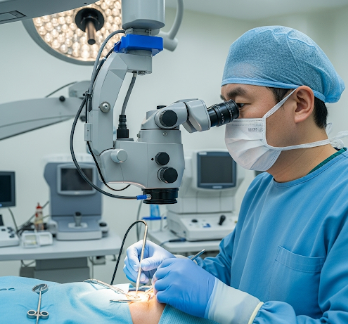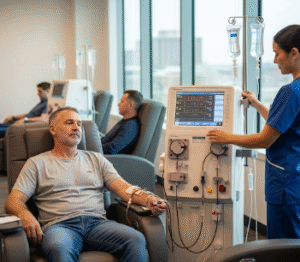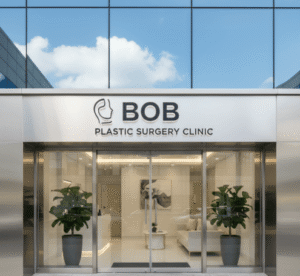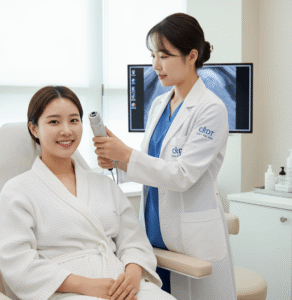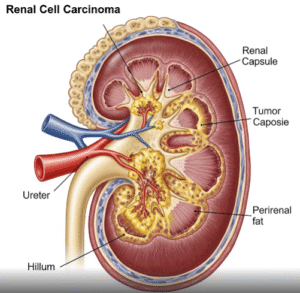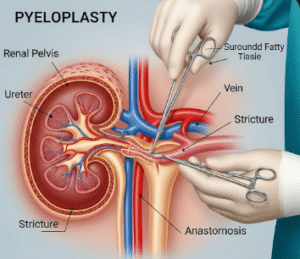Overview
Cataract surgery is a medical procedure to remove a cloudy lens from the eye and replace it with an artificial intraocular lens (IOL). Cataracts are a common age-related condition that causes blurred vision, glare, difficulty reading, and decreased color perception.
In South Korea, cataract surgery is performed using advanced microsurgical techniques, laser-assisted technology, and high-precision intraocular lenses, resulting in fast recovery, excellent visual outcomes, and minimal complications. Korean eye centers are renowned for personalized care and cutting-edge ophthalmic equipment.
What is Cataract Surgery?
Cataract surgery involves removing the eye’s cloudy natural lens and implanting a clear artificial lens to restore vision.
Types of cataract surgery include:
- Phacoemulsification (Phaco): Most common; uses ultrasound waves to break the lens into tiny pieces before removal.
- Laser-assisted cataract surgery: Femtosecond laser creates precise incisions and softens the lens for safer removal.
- Extracapsular cataract extraction (ECCE): Used for advanced cataracts where phacoemulsification may not be feasible.
The procedure is usually performed on an outpatient basis under local anesthesia.
What are the Benefits?
Cataract surgery provides numerous vision and lifestyle benefits:
✔ Improved clarity of vision and reduced glare.
✔ Restored ability to read, drive, and perform daily activities.
✔ Reduced dependence on glasses or contact lenses (with advanced IOLs).
✔ High success rates with minimal complications.
✔ Rapid recovery and enhanced quality of life.
✔ In Korea, state-of-the-art technology ensures precise outcomes and minimal post-operative discomfort.
Procedure Details
1) How should I prepare for Cataract Surgery?
- Comprehensive eye examination: Includes visual acuity tests, eye pressure measurement, and imaging of the lens and retina.
- Medication review: Inform your doctor about blood thinners or other systemic medications.
- Preoperative eye drops: Antibiotic or anti-inflammatory drops may be prescribed.
- Fasting: Usually not required for local anesthesia.
- Arrange transportation: Vision may be blurred after surgery, so plan for someone to accompany you.
Korean clinics provide detailed preoperative instructions and individualized surgical planning, often using 3D ocular mapping.
2) What happens during the procedure Cataract Surgery?
- Local anesthesia is applied to numb the eye; sedation may be given if needed.
- A small incision is made at the edge of the cornea.
- The cloudy lens is broken up using phacoemulsification or laser assistance.
- The intraocular lens (IOL) is inserted into the lens capsule.
- The incision is self-sealing or closed with minimal sutures.
The surgery typically lasts 15–30 minutes per eye, and patients can usually go home the same day.
3) What happens after a Cataract Surgery?
- Patients are monitored briefly and discharged with protective eye shields and prescribed eye drops.
- Mild discomfort, tearing, or light sensitivity may occur but usually resolves within a few days.
- Follow-up visits are scheduled at 1 day, 1 week, and 1 month post-surgery to monitor healing and vision.
- Vision improvement is typically noticeable within 24–48 hours, with optimal results after a few weeks.
Korean hospitals provide post-operative care packages, including drop schedules, follow-up appointments, and guidance on resuming daily activities.
Risks / Benefits
Potential Risks:
- ➤ Mild irritation or blurred vision immediately after surgery
- ➤ Infection (endophthalmitis, rare)
- ➤ Intraocular lens dislocation
- ➤ Retinal detachment (extremely rare)
- ➤ Swelling of cornea or retina (temporary in most cases)
Major Benefits:
- ✔ Restored clarity of vision and improved quality of life
- ✔ Reduced risk of falls or accidents caused by impaired vision
- ✔ High success rates (>95%) with modern techniques
- ✔ Minimal pain and rapid visual recovery
- ✔ Korean clinics provide advanced laser-assisted options for precision outcomes
Recovery and Outlook
- Immediate post-op: Vision may be hazy; use protective eyewear and prescribed eye drops.
- First week: Avoid rubbing the eye, heavy lifting, or swimming.
- 2–4 weeks: Most patients regain near-normal vision.
- Long-term outlook: Intraocular lenses are designed to last a lifetime; cataract rarely recurs.
In South Korea, expert surgeons and state-of-the-art ophthalmic technology ensure excellent long-term visual outcomes.
When To Call the Doctor
Contact your ophthalmologist if you experience:
- ➤ Sudden loss or worsening of vision
- ➤ Severe eye pain or redness
- ➤ Persistent floaters, flashes of light, or visual distortions
- ➤ Signs of infection (discharge or swelling)
- ➤ Increased sensitivity to light or double vision
Best Korea Option / Process
South Korea is a leading destination for cataract surgery due to:
- Highly skilled ophthalmologists experienced in laser-assisted and advanced lens implantation techniques
- Cutting-edge surgical equipment for precision and safety
- Comprehensive preoperative planning with ocular imaging and lens selection
- Rapid post-operative recovery protocols and follow-up care
- International patient support, including translators and travel assistance
- Affordable treatment costs compared to Western countries without compromising quality
Top hospitals and clinics for cataract surgery in Korea:
- Samsung Medical Center
- Asan Medical Center, Seoul
- Seoul National University Hospital
- Severance Hospital (Yonsei University Health System)

